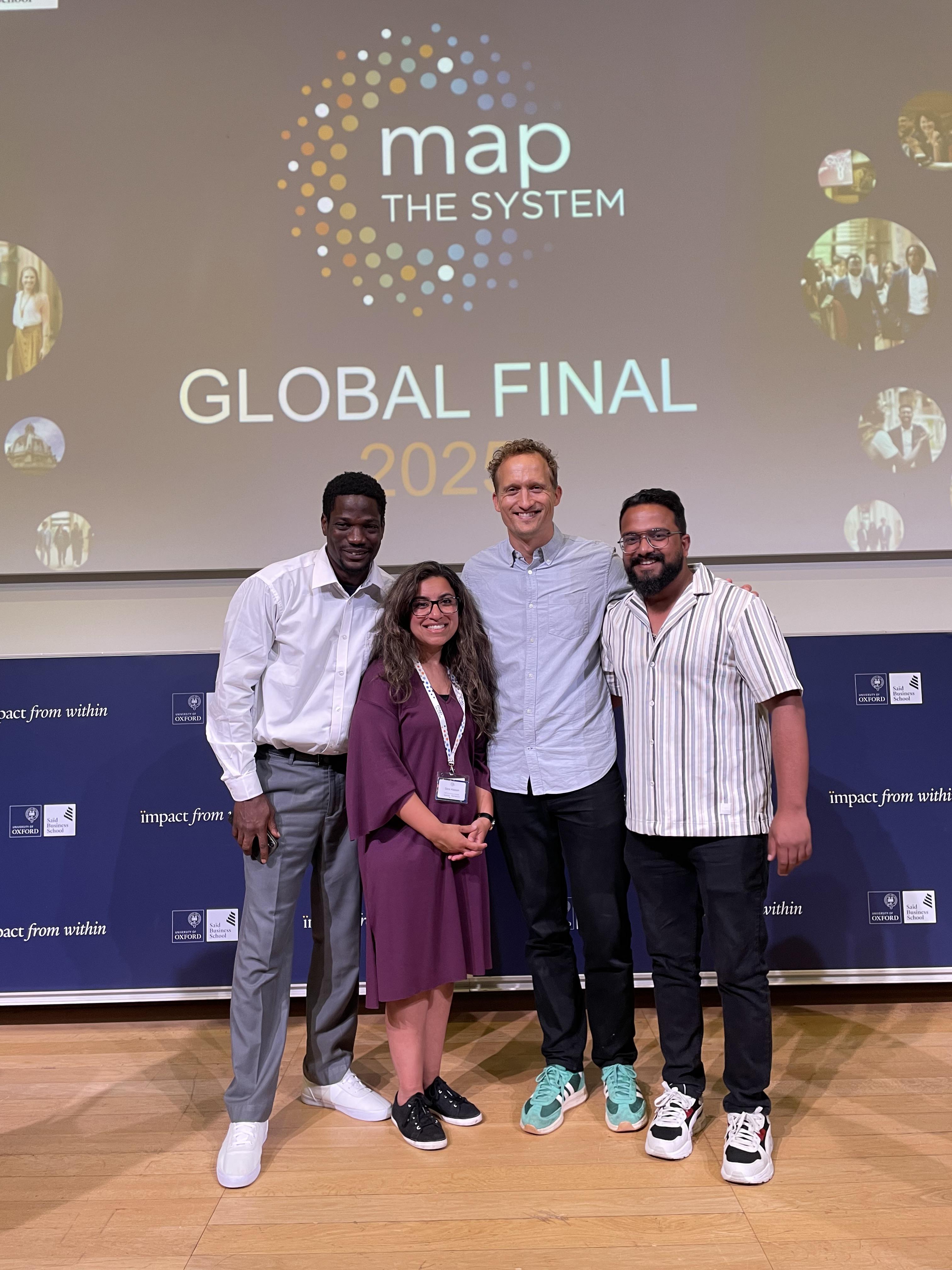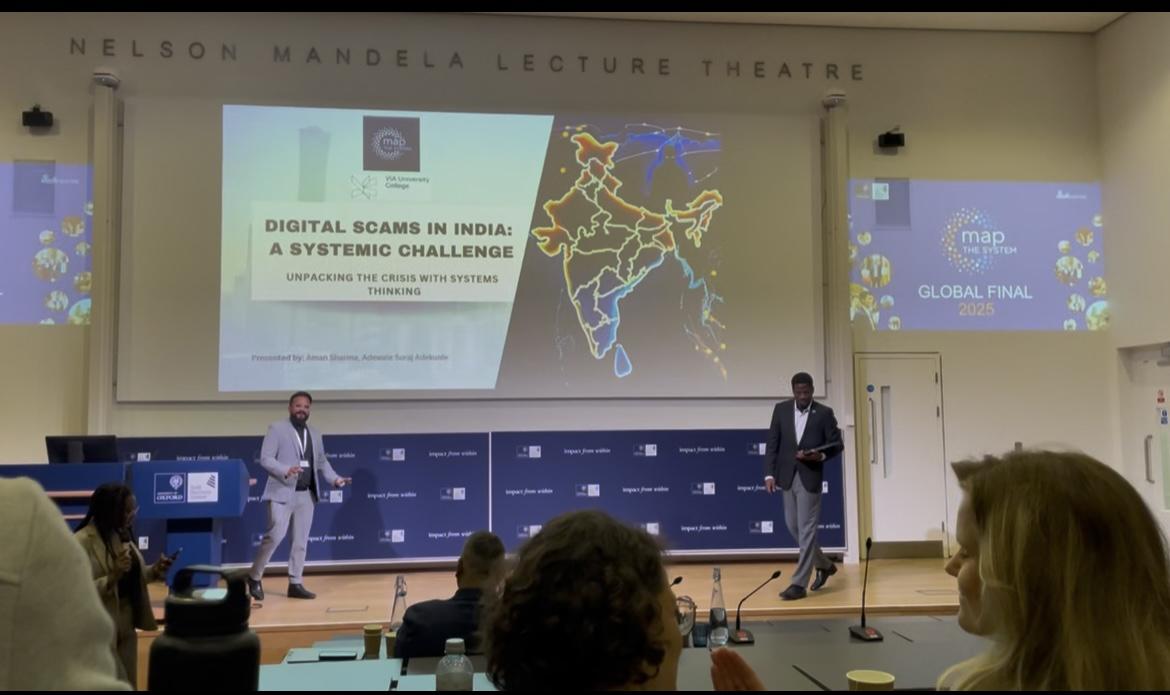
When Humber Polytechnic graduate Aman Sharma took part in the Map the System competition for the third time, his efforts took him all the way to the University of Oxford.
Sharma, who recently graduated from the Global Business Management program, participated in Map the System three times during his two years at Humber Polytechnic. He took part in his first year with the project Solid Waste Management Challenge in Kenya.
The following year, he signed up for the Map the System with his partners from the first year and they completed the project Surviving the System: The Opioid Crisis in Toronto.
However, that year he also decided to take part as a member of an international team working together through the Global Polytechnic Alliance (GPA). The GPA is a long-standing collaboration between VIA University College in Denmark, Humber and Otago Polytechnic | Te Pūkenga in New Zealand.

Map the System is a global competition hosted by the Skoll Centre for Social Entprepreneurship at Oxford University that tasks students with addressing environmental and social issues by first studying them to gain a deeper understanding of the root causes of a problem, its broader context and how it connects to other problems, which is a process known as systems thinking. The students attempt to make sense of its complexity by looking at the problem as a whole and focusing on the relationships between aspects of the problem – rather than by breaking it down into parts.
Systems thinking calls for a deep dive into complex issues. The idea is to understand what drives them before attempting to intervene so that the proposed solutions are successful and don't backfire and create more problems. The hope is to understand the nature of interconnectedness in order to understand the consequence of the actions. Otherwise, the solutions may have unintended (and unwanted) consequences.
Sharma says Map the System has been a life-changing experience for him and has made him a more curious and inquisitive person.
“Map the System has changed my perspective on how I look at the world,” said Sharma, adding he’s found that he now applies the systems thinking approach in day-to-day life.
Their presentation, Digital Scams in India: A Systemic Challenge, looked at the rise in digital scams in India. Using a systems thinking approach, they identified root causes including digital illiteracy, poverty-induced cybercrimes, weak legal enforcement, low barriers to entry into digital scamming and low reporting by victims due to shame.
Their key finding was that digital fraud is not an IT problem but a systemic problem. Breaking the cycle requires grassroots-level digital literacy, trauma-informed care and collective governance. They feel the system must be changed to protect India's digital future.
Sharma and his team, which included his Danish peer from VIA Adewale Adekunle, won the VIA University College campus competition and went directly to Oxford University to represent VIA and the GPA at the Map the System finals.

Of the more than 50 post-secondary institutions and 1,750 participants worldwide, only 138 were brought to Oxford and Sharma was thrilled his team was one that was extended an invite.
“As children, so many of us dream of going to Oxford University so to be able to visit it was a humbling experience,” said Sharma. “I was half-asleep when I got the phone call from (mentor and Humber faculty member) Sara (Hassan) but I immediately woke up when she said we were going to Oxford.”
In England, Sharma networked with his peers from around the world including the United States, South Korea and Nepal. It also opened his eyes to their mindsets and perspectives and the issues of importance in their respective countries.
Meanwhile, adding to the challenge of working virtually across different time zones with people at different institutions was further complicated by the fact that the presenters – Sharma and Adekunle – had never met in person until they got to Oxford. Sharma said their team was the only one that had that experience and it meant they were working on their live presentation until the last possible minute and excelling under pressure
Find out more about Map the System by visiting Map the System Canada and the Skoll Centre website.